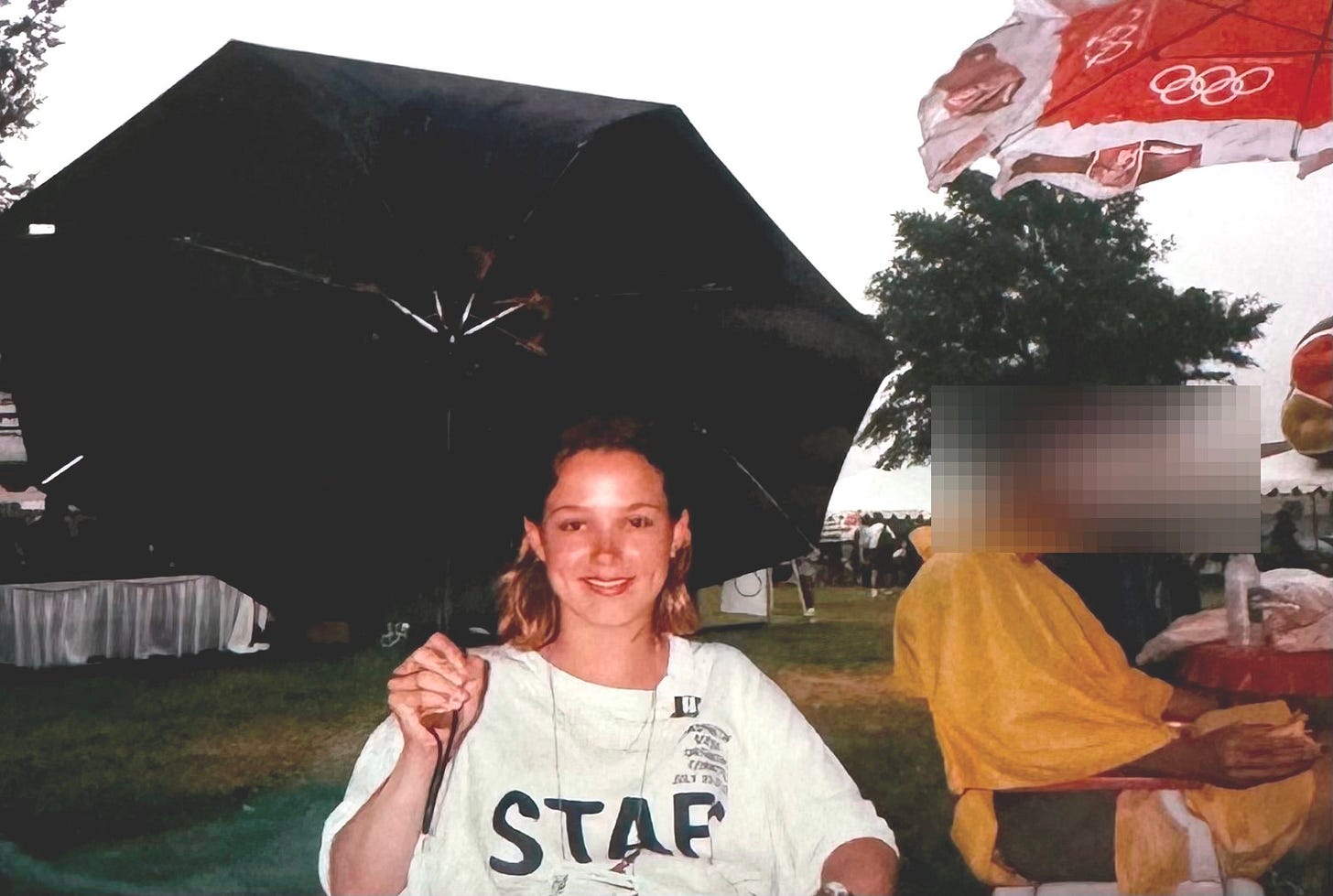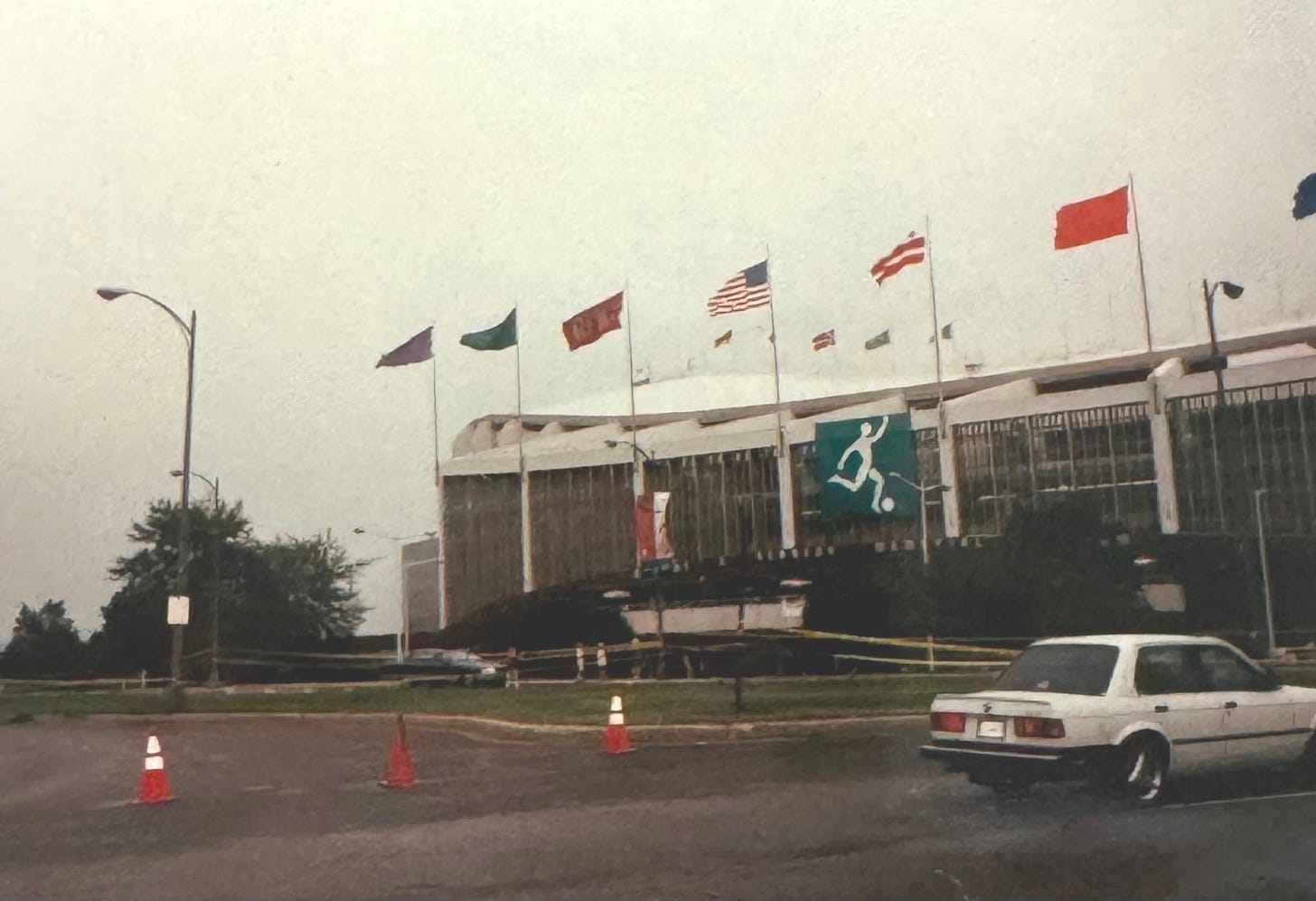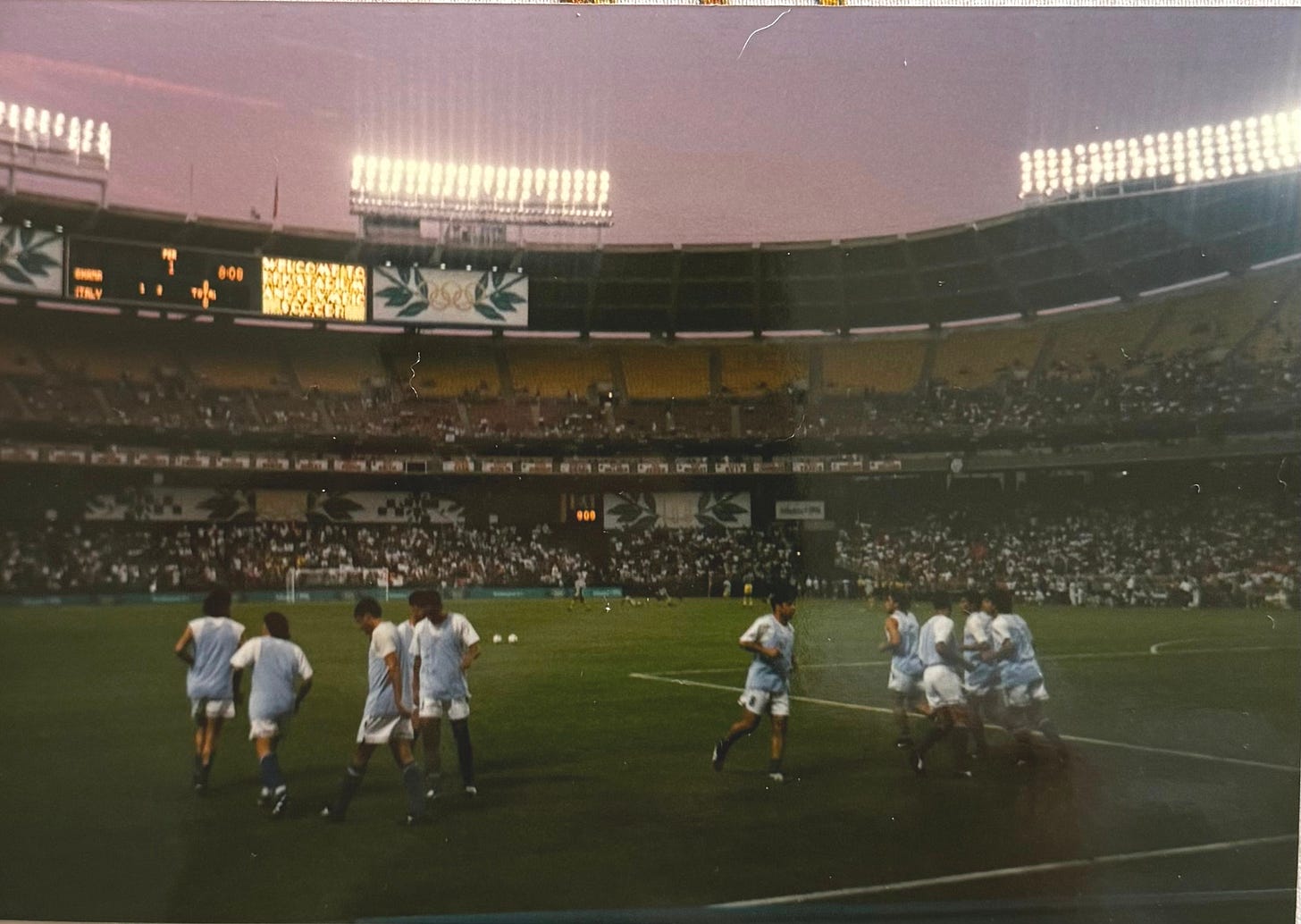Few things in soccer are worse than an own goal.
An own goal is when a player scores a point for the other side. Sometimes the lightest tap from a boot or a bounce off of an elbow can send the ball across the line and into the net, resulting in a goal that counts for the other team. A false touch that results in an own goal is not simply a zero for your team, it’s a point for the other guys.
When I learned that the United States would co-host World Cup 2026 with Canada and Mexico, I was excited. I was proud to see my country working with its neighbors to bring the most important sporting event in the world back to North America. I became nostalgic for 1994, when the U.S. hosted the World Cup for the first time and MLS was yet to play its first match.
I was actually there in 1994, the year when the U.S. finally started to get serious about “football.” As a volunteer at the 1994 FIFA World Cup, I remember very little from match results and much more about the friendly and festive mini universes that would pop up several times each day as fans from far and wide flowed in and out of the stadium.
But the 1994 World Cup is also known for an infamous own goal. On June 22, just a few days into the tournament, Colombian player Andrés Escobar scored an own goal in his country’s 2-1 loss to the United States.
Many punters, including drug cartel associates, lost a lot of money when Colombia fell to the USA. Five days after his team failed to advance to the next round, Escobar returned to Medellin, where he was gunned down outside a night club. The shooter reportedly shouted “Gol!” with every shot.
In the last weeks, the United States announced and retracted wave after wave of tariffs against nearly every one of its trading partners. At first, I wondered if U.S. Soccer was worried that this decades-long project to elevate the sport in the United States would fall short of expectations now that the country’s own president was actively discouraging international visitors from coming. Where was the outrage?
It didn’t take much to find news about the recent visit of FIFA President Gianni Infantino to the White House. It was during this meeting that Trump signed an executive order creating a task force—chaired by himself and co-chaired by VP Vance—that will handle all logistics and security for the entire event in all three countries. It was during this same press conference when Trump said that trade wars would make the World Cup “more exciting.”1
How can the US handle security for all three countries when it is in a trade war with the very same neighbors? Where does that task force money go?
They are grifting out in the open now and no one is saying a goddamn word.
I started this essay to argue in favor of a boycott of next year’s World Cup 2026 and its sponsors. My country is being pillaged by modern day Barberini,2 who announce the closure the Department of Education one week3 then call for the collection of overdue student loans the next.4 But, the more I thought about it, the more I knew how pointless a boycott would be.
I decided instead to write about my journey as an American-born lover of the game of soccer. What follows below is more of less what I planned to publish on Easter Monday. But when I woke on the morning of April 21 and saw that Pope Francis had died5, I put my phone back on the nightstand, rolled over, and slept for another 14 hours.

I volunteered to work at RFK Stadium in Washington, DC, during the 1994 World Cup and again during the 1996 Summer Olympics so I could see a few soccer matches for free. I had fallen in love with the sport in 1992, when Denmark stunned Germany to win the Euros. I was living in Germany at the time and the silence of that night would have been deafening if not for the jubilant cries of my host brother, a devoted fan of underdogs and schadenfreude.
I was hooked.
Growing up in the Deep South, I knew about football, basketball, baseball/softball, and was familiar with most Summer Olympic sports. Tennis grew in popularity in late-80s/early-90s America thanks to John McEnroe’s brat summers at Wimbledon the home-grown rivalry between Sampras and Agassi. Televised tennis was one of my first entry points to the wide world beyond the United States, and I became obsessed with Steffi Graf, Stefan Edberg, and “Breakfast at Wimbledon.”
Before an exchange year in Germany, I had never seen a soccer match. Had I never gone abroad, it’s doubtful that I would have known about the World Cup when the U.S. hosted it in 1994.
When the World Cup last came to the USA, the North American Soccer League (NASL) had folded 10 years prior. I had heard exotic names like Pelé and Beckenbauer on the evening news. But the sport preferred by rest of the world did not exist in my world until I was a teenager.
Writing about the 1994 World Cup on its 20th anniversary, the Los Angeles Times called it “the most transformative event in U.S. soccer history.”6 FIFA awarded WC94 to the USA on July 4, 1988, with the requirement that U.S. Soccer re-establish a professional soccer league.
Major League Soccer (MLS) existed only on paper the last time the United States hosted the World Cup. Founded only in 1993, MLS debuted on April 6, 1996, in San Jose, California, where the San Jose Clash defeated DC United 2-1 before a sellout crowd.
The first seasons of MLS were fun, largely helped by the fact that DC United, my hometown team, won the first MLS Cup. But many other aspects of the league were cringe-inducing to fans who knew the standardized rules. To appeal to the U.S. market, MLS tried to “Americanize” some aspects of the game, such as using a countdown clock.
Luckily, a lot of those “improvements” have been scrapped over the years. Today, although soccer ranks as Americans’ fourth or fifth favorite sport, MLS has become the 10th most lucrative sports league in the world, trailing just behind Ligue 1 in France and just ahead of the Campeonato Brasileiro.

In roughly 400 days, on June 11, 2026, World Cup 2026 will kick off in Mexico City, making Mexico the tournament’s first three-time host. The 2026 World Cup will expand from 32 to 48 teams, so it will run slightly longer than one month. The final match, set for July 16, 2026, will be played at MetLife Stadium in East Rutherford, New Jersey.
The 1994 World Cup still holds the record for highest attendance of any World Cup. That record should easily fall in 2026, given a 50 percent expansion in the number of teams that can qualify.
Local leaders and media, especially those in conservative states, are well aware of the financial benefits of hosting one or several World Cup matches. Dallas-Fort Worth, hosting nine matches including a semifinal, is estimating an economic boost between $1.5 billion to $2.1 billion. The Miami-Dade area—birthplace of the nation’s current top diplomat7—also anticipates revenue of about $1.5 billion. Atlanta and East Rutherford expect to pull in as much as $500 million as World Cup 2026 host cities.8
How many fans will avoid traveling to the US this summer for fear of being detained? Likewise, how many international travelers will skip the States when the U.S. hosts the Summer Olympics in 2028?
While Pope Francis had been ill for a while, the timing of his passing—on Easter Monday, just a day after twice having to meet U.S. Vice President J.D. Vance—felt too scripted. Was this part of yet another conclave thriller? A Pope trope? Here were the direct representatives of Good and Evil on earth. Then, just like an unwelcome plot twist, the good guy dies.
But J.D Vance isn’t (necessarily) evil—he is basically me. Like J.D., I grew up of modest means in a rural American backwater among hillbillies from whom I yearned to break free. J.D. Vance wasn’t born evil. It’s just that I know he knows better—I had a Mamaw, too.
So when Vance, goaded on by his master, played the all-too-common role of “Man Seeking Gratitude” in the now-infamous meeting with Ukraine leader Zelensky, I felt physically ill. Imagine squandering the redemptive arc of a bestselling memoir to become someone’s lackey! Or was that the thrill for him—finally having the chance to bully rather than be bullied?
In my experience, the only people who demand gratitude are the ones least likely to give it. While I know that I haven’t said “thank you” in my life as often as I should have, I also can’t recall having ever seethed silently or shouted petulantly while waiting for a “thank you” I thought I deserved. Maybe that’s just part of being a woman or a mom—you get used to doing things that no one thanks you for and you move on.
Of course, the need for others’ constant gratitude is a symptom of the same sickness. The “thank yous” and the money will never be enough until one learns how to handle their own desires. And the easiest way to tame the desire is by expressing gratitude, to others but also to oneself. I am far from pure on this issue, but I’ve felt so many benefits9 from this abundance mindset.
Having Pope Francis pass as I wrote about the upcoming World Cup was uncanny. A known lover of futbol, Jorge Mario Bergoglio was a supporter of San Lorenzo, the club from his native Buenos Aires. He invited the club to the Vatican several times during his papacy. And in September 2016, AS Roma hosted San Lorenzo in a charity match to help victims of the earthquake near Assisi.
I was there. It was a Saturday, but it could’ve been a Sunday. Even in places where Sundays are sacred, you’ll find soccer matches to attend or tune into. The San Lorenzo match was a Friendly, so it wasn’t very competitive or memorable. But it was church.
I’m sad about Francis. But mostly, I’m sad about the soccer and how the cynical creeps running the U.S. government have cursed the whole thing.
On the other hand, I’m not sad that I recently lost my job, as the time has allowed me to step off the hamster wheel of a year that has included a lost job, a separation, a relocation, and my first child’s move to college, among other milestones. It’s been a lot, but there are few more hills to climb.
I stayed up late again finishing this post rather than studying for tomorrow’s German exam. But now I have to wrap this up because who knows what news will come tomorrow.
Thanks for reading.
-M
Footnotes
https://www.cbsnews.com/philadelphia/news/trump-fifa-world-cup-2026-task-force/
https://www.theatlantic.com/magazine/archive/1954/06/the-new-barbarians/640778/
https://www.npr.org/2025/03/19/nx-s1-5333861/trump-executive-action-education-department
https://abc7chicago.com/post/student-loan-borrowers-scramble-find-new-payment-options-save-forgiveness-plan-ending-us-department-education-layoffs/16154611/
https://www.nytimes.com/2025/04/21/world/europe/pope-francis-dead.html
https://www.latimes.com/sports/soccer/la-sp-us-world-cup-mls-20140601-story.html
https://www.reddit.com/r/AskMiddleEast/comments/1j4w2qb/marco_rubio_appeared_in_a_television_interview/
https://www.theguardian.com/us-news/2025/apr/26/trump-tariffs-trade-war-tourism









That's unbelievable (what isn't unbelievable these days?) about Trump's "take-over" of the World Cup. There's literally so much grifting going on that most of it falls under the radar. 2024 marked the year America proudly and boldly launched a shot straight into its own goal. Thanks for bringing this ridiculous meeting with FIFA to light. And I loved the "brat summers" of John McEnroe. Great line.